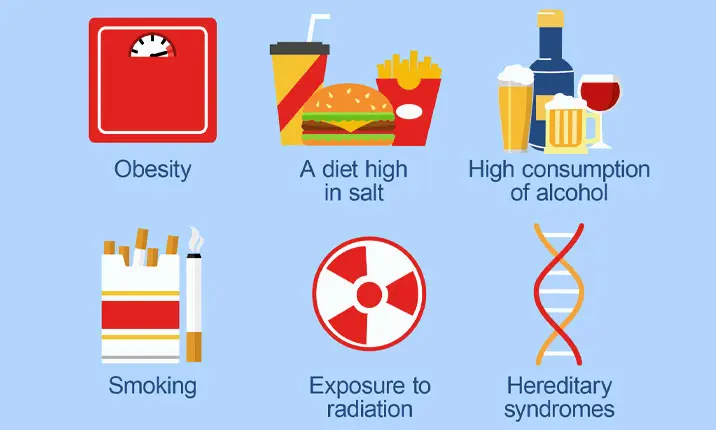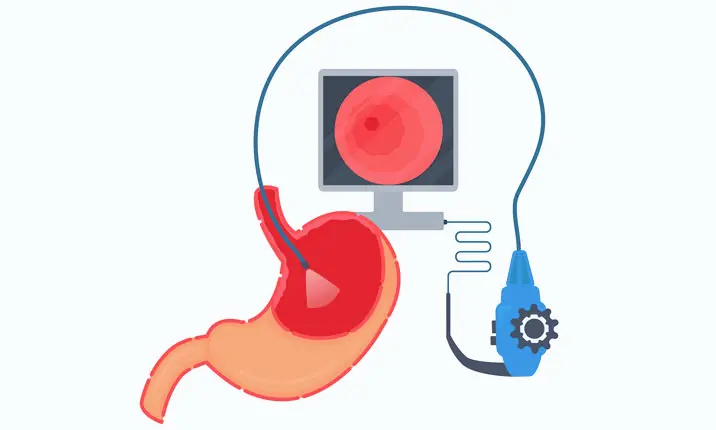-
-
Khu vực chăm sóc và điều trị


Nguồn: Getty Images
Ung Thư Dạ Dày: Những Điều Bạn Nên Biết
Cập nhật lần cuối: 29 Tháng Chín 2022 | 4 phút - Thời gian đọc
Có phải bạn đang gặp phải nguy cơ mắc bệnh ung thư dạ dày? Tìm hiểu về các triệu chứng phổ biến, các xét nghiệm sàng lọc sẵn có, và các lời khuyên phòng tránh nhằm giúp giảm thiểu nguy cơ mắc bệnh ung thư dạ dày.
Ung thư dạ dày, cũng được biết đến với cái tên ung thư bao tử, là một trong các dạng bệnh ung thư phổ biến nhất trên toàn thế giới. Đây từng là nguyên nhân hàng đầu gây tử vong do ung thư cho đến những năm 1980, khi vị trí đó bị bệnh ung thư phổi chiếm đoạt.
Mặc dù tỉ lệ mắc bệnh ung thư dạ dày trên toàn thế giới đã giảm bớt trong vài thập kỷ qua do sự phát hiện và điều trị các yếu tố rủi ro, tình trạng này vẫn là dạng bệnh ung thư phổ biến thứ 7 trong nam giới và phổ biến thứ 9 trong nữ giới tại Singapore.
Ung thư dạ dày xuất hiện khi các tế bào bình thường ở vị trí bất kỳ trong dạ dày bắt đầu thay đổi và phát triển bất thường. Có nhiều thể loại ung thư dạ dày khác nhau, phụ thuộc vào loại tế bào và phần dạ dày liên quan.
Các Yếu Tố Nguy Cơ Mắc Bệnh Ung Thư Dạ Dày
Tại Singapore, ung thư dạ dày thường phổ biến hơn ở nam giới, và ở các đối tượng trong độ tuổi từ 50 - 70. Hai yếu tố nguy cơ quan trọng dẫn đến ung thư dạ dày là sự lây nhiễm vi khuẩn helicobacter pylori (H. pylori) và tiền sử gia đình mắc ung thư dạ dày. H. pylori là một loại vi khuẩn có khả năng lây nhiễm vào dạ dày và ruột. Nếu không được điều trị, tình trạng lây nhiễm vi khuẩn H. pylori có thể dẫn đến ung thư dạ dày.
Các yếu tố nguy cơ đã được biết đến khác dẫn đến ung thư dạ dày bao gồm:
- Bệnh béo phì
- Chế độ ăn uống giàu muối và các thực phẩm bảo quản bằng muối, như cá muối, thịt muối, và rau củ muối
- Tiêu thụ nhiều đồ chiên rán, thịt đã qua chế biến và đồ uống có cồn; tiêu thụ ít rau củ, trái cây, sữa, và vitamin A
- Hút thuốc và tiếp xúc với khói thuốc lá
- Lây nhiễm virus Epstein-Barr
- Những người sống sót sau bệnh ung thư, từng trải qua việc phơi nhiễm vùng bụng với phóng xạ
- Các hội chứng mang tính di truyền như chứng đa polyp dạng tuyến trong gia đình (FAP) và hội chứng ung thư ruột kết di truyền không polyp (Hội chứng Lynch)
- Các tình trạng bệnh lý liên quan đến dạ dày như teo dạ dày mãn tính, thiếu máu ác tính, cắt dạ dày từng phần, và polyp dạ dày
Các Triệu Chứng Ung Thư Dạ Dày
Các triệu chứng có thể không biểu hiện trong các giai đoạn đầu bệnh ung thư dạ dày. Tuy nhiên, khi bệnh tiến triển, các triệu chứng phổ biến được bệnh nhân trải qua bao gồm đau bụng dai dẳng và sụt cân không rõ nguyên nhân.
Các triệu chứng ung thư dạ dày khác bao gồm:
- Khó nuốt
- Mất cảm giác ngon miệng, hoặc dễ cảm thấy no
- Buồn nôn
- Chảy máu (phân dính máu có màu sẫm hoặc nôn ra máu) có thể dẫn đến thiếu máu
- Có khối u hoặc cục ở vùng bụng
Sàng Lọc Và Xét Nghiệm Ung Thư Dạ Dày
Mặc dù bệnh ung thư dạ dày đã có sự giảm bớt về tỷ lệ tử vong, việc phát hiện sớm là một yếu tố rất quan trọng để bệnh nhân có thể chủ động tìm kiếm phương pháp điều trị kịp thời, từ đó có tiên đoán hoặc kết quả điều trị tốt hơn.
Ngoài việc đi khám sức khỏe hàng năm nhằm kiểm tra các nguy cơ về sức khỏe, bệnh nhân cũng có thể cân nhắc các xét nghiệm sàng lọc ung thư dạ dày chuyên biệt, chẳng hạn như:
- Nội soi dạ dày, công đoạn mà bác sĩ sẽ đưa một ống dài mỏng có gắn camera vào bên trong để quan sát đường tiêu hóa trên. Sinh thiết cũng có thể là cần thiết trong trường hợp có phát hiện khối u bất thường dọc theo đường tiêu hóa trên.
- Các nghiên cứu hình ảnh, như chụp cắt lớp vi tính (CT).
- Xét nghiệm máu (các dấu hiệu ung thư) như GASTROClear. Xét nghiệm này có độ nhạy và độ đặc hiệu lần lượt ở mức khoảng 89% và 68%, hiện đã sẵn sàng tại các phòng khám Parkway Shenton.
Phân Giai Đoạn Ung Thư Dạ Dày
Bệnh nhân đã được chuẩn đoán lâm sàng có mắc bệnh ung thư dạ dày nên thực hiện quá trình đánh giá phân giai đoạn. Biết được giai đoạn cụ thể của bệnh sẽ hỗ trợ trong việc định hướng phương thức điều trị và cho phép bác sĩ đề xuất một (hoặc một vài) phương thức điều trị phù hợp nhất, đồng thời dự đoán kết quả quá trình điều trị.
Việc phân giai đoạn thường được thực hiện sau nhiều khảo sát thông qua một hoặc nhiều phương pháp sau:
- Chụp cắt lớp vi tính (CT) vùng ngực, bụng, và xương chậu
- Chụp cắt lớp phát xạ positron (PET) hoặc chụp cắt lớp vi tính (CT)
- Nội soi ổ bụng để phát hiện sự di căn ung thư đến vùng phúc mạc
Điều Trị Ung Thư Dạ Dày
Các phương án điều trị ung thư dạ dày sẽ phụ thuộc vào giai đoạn cụ thể của bệnh. Giai đoạn bệnh được xác định dựa theo kích thước, vị trí, và mức độ lây lan của khối u, cũng như tình trạng sức khỏe toàn diện của bệnh nhân. Quá trình điều trị ung thư dạ dày có thể bao gồm sự kết hợp giữa các phương pháp sau:
- Phẫu thuật để loại bỏ một phần, hoặc thậm chí toàn bộ dạ dày
- Hóa trị bằng cách sử dụng thuốc để tiêu diệt hoặc ngăn chặn tế bào ung thư phát triển
- Xạ trị để tiêu diệt tế bào ung thư
- Miễn dịch trị liệu bằng các loại thuốc sử dụng hệ miễn dịch cơ thể để ngăn chặn sự phát triển của ung thư
Phòng Tránh Ung Thư Dạ Dày
Các thói quen trong lối sống lành mạnh có thể được áp dụng nhằm giảm thiểu nguy cơ phát triển ung thư dạ dày. Một vài lời khuyên bao gồm:
- Ăn nhiều hoa quả và rau củ hơn, vì chất xơ, vitamin và các khoáng chất trong thực phẩm này có thể hỗ trợ bảo vệ cơ thể chống lại ung thư dạ dày
- Giảm thiểu tiêu thụ các thực phẩm muối chua và được bảo quản
- Tránh hút thuốc
- Tập thể dục thường xuyên
- Duy trì cân nặng lành mạnh
Nếu bạn có bất kỳ câu hỏi nào hoặc nhận thấy điều bất thường trong tình trạng sức khỏe, hãy cân nhắc việc thực hiện kiểm tra sức khỏe hoặc đặt lịch hẹn gặp bác sĩ gia đình để trao đổi về tình trạng của bạn và những biện pháp có thể được thực hiện nhằm xử lý tình trạng. Bạn có thể tìm thấy một phòng khám Parkway Shenton ở gần bạn tại đây.











